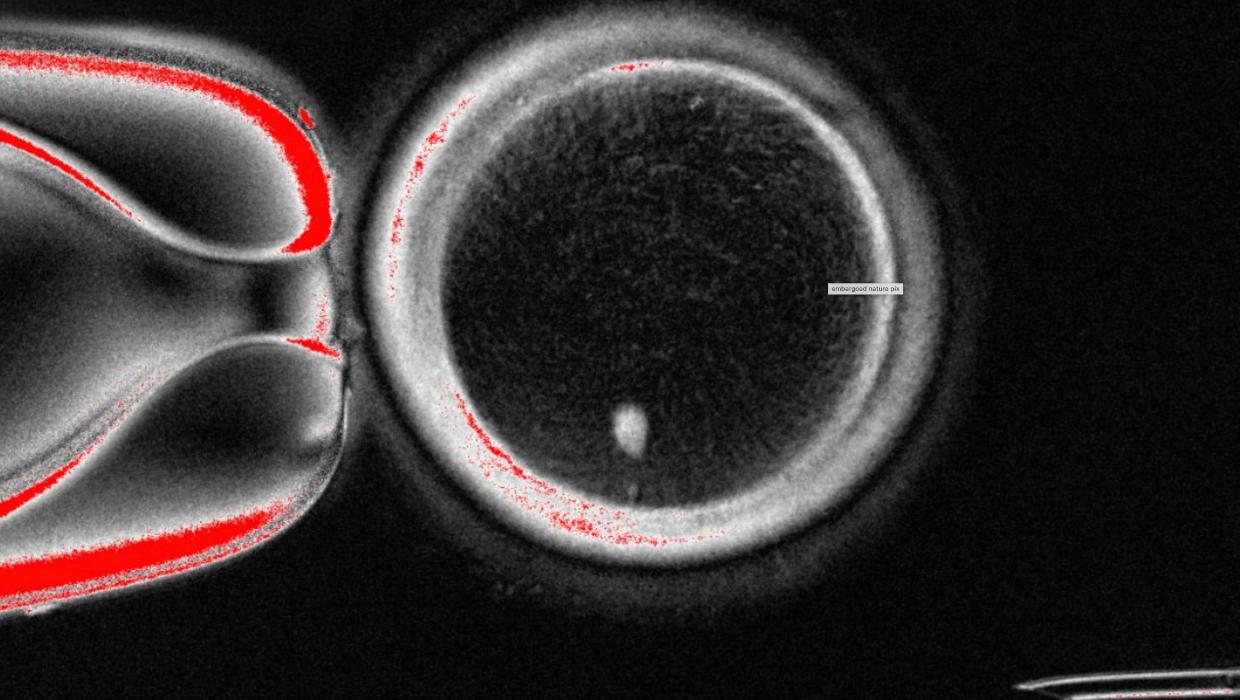Science
US Scientists Transform Skin Cells into Fertilizable Eggs

Researchers in the United States have successfully converted human skin cells into fertilizable eggs. This groundbreaking achievement represents a significant advancement in the field of reproductive medicine, potentially paving the way for lab-grown eggs and sperm to assist individuals facing fertility challenges.
This innovative research, conducted by a team at the University of California, Los Angeles (UCLA), marks a pivotal moment in efforts to create viable gametes from somatic cells. By reprogramming skin cells into pluripotent stem cells, the scientists were able to coax these cells into developing into oocytes, or egg cells, that possess the ability to be fertilized.
Implications for Fertility Treatments
The implications of this research extend beyond basic science. According to Dr. Amander Clark, the principal investigator of the study, “Our work opens up exciting possibilities for patients who struggle with infertility due to age or other medical conditions.” The potential to produce gametes from a person’s own cells could revolutionize fertility treatments, offering hope to those who have limited options today.
Currently, assisted reproductive technologies such as in vitro fertilization (IVF) rely on the availability of healthy sperm and eggs. The ability to generate these gametes in the lab could not only expand the options for couples but also help individuals undergoing medical treatments that adversely affect their fertility, such as chemotherapy.
The researchers have successfully demonstrated that the reprogrammed skin cells can develop into functional egg cells within a laboratory setting. In their experiments, the scientists observed that these lab-grown eggs could undergo fertilization and develop into early-stage embryos, albeit in a controlled environment.
Future Research Directions
As promising as this research is, it is important to note that it is still in the early stages. The next steps will involve further studies to understand the full developmental potential of these lab-grown eggs and their viability for actual conception.
The team at UCLA plans to build on this research by exploring whether similar techniques can be used to create sperm cells. If successful, this could offer a comprehensive solution for individuals and couples facing infertility due to a lack of viable gametes.
The findings of this study, published in a leading scientific journal in late 2023, represent a significant stride towards achieving more personalized reproductive healthcare. As research continues, the hope is that such advancements will lead to improved outcomes for many individuals seeking to conceive.
In summary, the transformation of human skin cells into fertilizable eggs by US scientists marks a major milestone in reproductive science. This innovative approach has the potential to reshape the future of fertility treatments and provide new hope for those struggling with infertility.
-

 World1 week ago
World1 week agoPrivate Funeral Held for Dean Field and His Three Children
-

 Top Stories2 weeks ago
Top Stories2 weeks agoFuneral Planned for Field Siblings After Tragic House Fire
-

 Sports3 months ago
Sports3 months agoNetball New Zealand Stands Down Dame Noeline Taurua for Series
-

 Entertainment3 months ago
Entertainment3 months agoTributes Pour In for Lachlan Rofe, Reality Star, Dead at 47
-

 Entertainment2 months ago
Entertainment2 months agoNew ‘Maverick’ Chaser Joins Beat the Chasers Season Finale
-

 Sports3 months ago
Sports3 months agoSilver Ferns Legend Laura Langman Criticizes Team’s Attitude
-

 Sports1 month ago
Sports1 month agoEli Katoa Rushed to Hospital After Sideline Incident During Match
-

 World2 weeks ago
World2 weeks agoInvestigation Underway in Tragic Sanson House Fire Involving Family
-

 Politics2 months ago
Politics2 months agoNetball NZ Calls for Respect Amid Dame Taurua’s Standoff
-

 Top Stories2 weeks ago
Top Stories2 weeks agoShock and Grief Follow Tragic Family Deaths in New Zealand
-

 Entertainment3 months ago
Entertainment3 months agoKhloe Kardashian Embraces Innovative Stem Cell Therapy in Mexico
-

 World4 months ago
World4 months agoPolice Arrest Multiple Individuals During Funeral for Zain Taikato-Fox




















